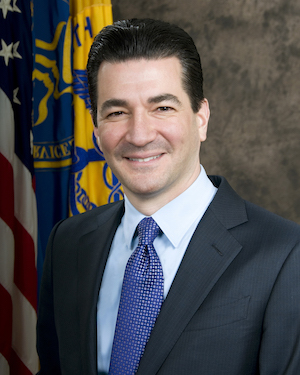 Over the years I've listened to many new-to-health-care entrepreneurs pitch their great new idea. They're so excited: health care is so inefficient! People are so frustrated by the system! It will be so easy to improve it! I usually end up thinking, "Oh, you poor people. You really don't know much about health care, do you?" They don't fully grasp the strange way it is bought and sold, the convoluted financing, or the layers of regulation. So I wish them well and wait to hear about their eventual failure. But now I'm thinking, maybe it is experts like me who are part of health care's problem. In Harvard Business Review, Ayse Birsel suggests that companies need to do more "reverse thinking," deliberately thinking up wrong ideas...
Over the years I've listened to many new-to-health-care entrepreneurs pitch their great new idea. They're so excited: health care is so inefficient! People are so frustrated by the system! It will be so easy to improve it! I usually end up thinking, "Oh, you poor people. You really don't know much about health care, do you?" They don't fully grasp the strange way it is bought and sold, the convoluted financing, or the layers of regulation. So I wish them well and wait to hear about their eventual failure. But now I'm thinking, maybe it is experts like me who are part of health care's problem. In Harvard Business Review, Ayse Birsel suggests that companies need to do more "reverse thinking," deliberately thinking up wrong ideas...
US Food and Drug Administration (FDA)
See the following -
A DIY Pharmaceutical Revolution Is Coming—If It Doesn’t Kill Us First
As Mixael Laufer tells it, the vision came to him in El Salvador. Laufer was visiting Central America as a human rights envoy, touring a tiny, rural mountain town with the Marin County Peace and Justice Coalition. When he arrived at the town’s medical clinic, it had just run out of birth control. “I thought to myself, ‘This is a country where there are there are methamphetamine and ecstasy labs everywhere. Birth control isn’t that much more complicated,’” Laufer told Gizmodo. “‘Why aren’t these people just making their own birth control?’”...
- Login to post comments
Complaints about Electronic Medical Records Increase
Last month, the nation’s largest union of registered nurses sent a letter to the FDA asking for broader and more stringent oversight of electronic records systems and of computerized physician-order entry systems, which allow clinicians to log treatment instructions for patients. The National Nurses United, as part of its broader campaign highlighting the potential dangers of “unproven medical technology,” says FDA officials should test electronic medical records as rigorously as they might a new drug or an artificial hip implant...
- Login to post comments
Electronic Records System Failure at Hospitals Prompts Nurses’ Concerns for Patient Safety
 Registered nurses at Antelope Valley Hospital in Lancaster, Ca have asked the Los Angeles County Department of Public Health to investigate the failure of an electronic health records system at their hospital last weekend which they say led to the closure of the hospital emergency room and multiple other problems that put patients at risk. In a message to the Los Angeles DPH office, Antelope Valley RN Maria Altamirano, on behalf of other RNs who are members of the California Nurses Association/National Nurses United warned that on February 27 “our entire electronic and data system failed.”
Registered nurses at Antelope Valley Hospital in Lancaster, Ca have asked the Los Angeles County Department of Public Health to investigate the failure of an electronic health records system at their hospital last weekend which they say led to the closure of the hospital emergency room and multiple other problems that put patients at risk. In a message to the Los Angeles DPH office, Antelope Valley RN Maria Altamirano, on behalf of other RNs who are members of the California Nurses Association/National Nurses United warned that on February 27 “our entire electronic and data system failed.”
- Login to post comments
FDA Launches Open Source Tool to Help Capture Data from Patients
 Today the U.S. Food and Drug Administration is announcing the MyStudies app, a new mobile technology to foster the collection of real world evidence via patients' mobile devices. Real world data can be collected from a variety of sources, such as electronic health records, claims and billing activities, and product and disease registries, as well as from patient-generated data including in home-use settings, or from data gathered from other sources, such as mobile devices. As part of the agency's work to foster greater opportunities around real world evidence, the FDA partnered with Kaiser Permanente on a pilot study to measure the functionality and engagement of the MyStudies app.
Today the U.S. Food and Drug Administration is announcing the MyStudies app, a new mobile technology to foster the collection of real world evidence via patients' mobile devices. Real world data can be collected from a variety of sources, such as electronic health records, claims and billing activities, and product and disease registries, as well as from patient-generated data including in home-use settings, or from data gathered from other sources, such as mobile devices. As part of the agency's work to foster greater opportunities around real world evidence, the FDA partnered with Kaiser Permanente on a pilot study to measure the functionality and engagement of the MyStudies app.
- Login to post comments
Five Ways Consortia Can Catalyse Open Science
“I am going to my grave with my disk drive in my cold dead hands.” So a senior scientist told a junior researcher, who related the tale at a 2013 US National Science Foundation (NSF) workshop on the reuse of physical samples in the geosciences. Sharing — of data sets, metadata, models, software and other resources — promises to speed discoveries, improve reproducibility and expand economic development. But it requires people to change. Overcoming personal reluctance is doubly difficult because many aspects of the scientific enterprise undermine sharing. Right now, most departments, funders and journals presume that data are proprietary from collection to publication..
- Login to post comments
Google Proved That AI Can Reshape Medicine
A doctor’s work isn’t all done in examination rooms. Many specialists spend lots of time alone with the lights out, examining photographs that reveal their patients’ internal workings. That might soon change. A paper by Google published in the Journal of the American Medical Association details an algorithm that can detect when someone has developed blindness as a result of diabetes, trained and tested by board-certified ophthalmologists. It shows algorithms can, at least in the case of this particular affliction, make a diagnosis with an accuracy on-par with medical professionals...
- Login to post comments
Halamka Says We Can and Must Improve Healthcare Management
 As a physician and CIO, I’m quick to spot inefficiencies in healthcare workflow. More importantly, as the care navigator for my family, I have extensive firsthand experience with patient facing processes. My wife’s cancer treatment, my father’s end of life care, and my own recent primary hypertension diagnosis taught me how we can do better. Last week, when my wife received a rejection in coverage letter from Harvard Pilgrim/Caremark, it highlighted the imperative we have to improve care management workflow in the US. Since completing her estrogen positive, progesterone positive, HER2 negative breast cancer treatment in 2012 (chemotherapy, surgery, radiation), she’s been maintained on depot lupron and tamoxifen to suppress estrogen...
As a physician and CIO, I’m quick to spot inefficiencies in healthcare workflow. More importantly, as the care navigator for my family, I have extensive firsthand experience with patient facing processes. My wife’s cancer treatment, my father’s end of life care, and my own recent primary hypertension diagnosis taught me how we can do better. Last week, when my wife received a rejection in coverage letter from Harvard Pilgrim/Caremark, it highlighted the imperative we have to improve care management workflow in the US. Since completing her estrogen positive, progesterone positive, HER2 negative breast cancer treatment in 2012 (chemotherapy, surgery, radiation), she’s been maintained on depot lupron and tamoxifen to suppress estrogen...
- Login to post comments
Health IT tools lack proof of effectiveness
There are myriad apps, tools and technologies entering the healthcare marketplace--but most lack proof that they are helping consumers battle disease and stay healthy, according to an article in Fortune. To that end, hospitals must be very careful when adopting health IT, according to Richard Milani, chief clinical transformation officer at Ochsner Health System. "You want to be comfortable that the technology you're utilizing is reliable and accurate," Milani tells Fortune. "That's a genuine concern. If you have some scientific data or peer-reviewed data to back it up, that certainly makes it a little easier."
- Login to post comments
Health Tech Podcast: How One Woman Built Her Own Artificial Pancreas and Started a DIY Movement
 Dana Lewis has Type 1 diabetes, which means her pancreas doesn’t work the way it should: It doesn’t make the insulin she needs to survive. So, she built a new one. It’s not a biological organ. Lewis’ artificial pancreas system (APS) is an open-source computer system that monitors her blood sugar level and gives her body insulin as needed, building on the insulin pump and glucose monitor that she’s been using for years...
Dana Lewis has Type 1 diabetes, which means her pancreas doesn’t work the way it should: It doesn’t make the insulin she needs to survive. So, she built a new one. It’s not a biological organ. Lewis’ artificial pancreas system (APS) is an open-source computer system that monitors her blood sugar level and gives her body insulin as needed, building on the insulin pump and glucose monitor that she’s been using for years...
- Login to post comments
How a Bee Sting Saved My Life: Testimony From a Lyme Disease Patient
 Ellie Lobel was 27 when she was bitten by a tick and contracted Lyme disease. And she was not yet 45 when she decided to give up fighting for survival. Caused by corkscrew-shaped bacteria called Borrelia burgdorferi, which enter the body through the bite of a tick, Lyme disease is diagnosed in around 300,000 people every year in the United States. It kills almost none of these people, and is by and large curable - if caught in time...
Ellie Lobel was 27 when she was bitten by a tick and contracted Lyme disease. And she was not yet 45 when she decided to give up fighting for survival. Caused by corkscrew-shaped bacteria called Borrelia burgdorferi, which enter the body through the bite of a tick, Lyme disease is diagnosed in around 300,000 people every year in the United States. It kills almost none of these people, and is by and large curable - if caught in time...
- Login to post comments
How Congress Ignored Science and Fueled Antibiotic Resistance
The study was being conducted by Dr. Stuart B. Levy, a researcher in Boston. Levy was 36 in 1974. He was the son of a family doctor from Delaware and had grown up accompanying his father on house calls and discussing cases afterward. He was a faculty member at Tufts University School of Medicine, in a part of Boston that is gentrified now but was cheap and seedy then, and he had taken a circuitous route to get there, studying first literature, then medicine, and then microbiology in Italy and France...
- Login to post comments
How Superbugs Threaten Your Food And Life
...This worrying problem causing as much global concern as terrorism is antibiotic resistance. Antibiotics, the wonder drugs that made surgery safe and stopped disease outbreaks by preventing and curing all infections four decades ago, can no longer do so...
- Login to post comments
Innovation Needs Dumb Ideas
- Login to post comments
Interoperability by Design: FDA Issues New Final Guidance for Connected Medical Devices
 The FDA is focusing on safety and effectiveness of interconnected medical devices with the issuance of final guidance on medical device interoperability, released last week. As the FDA notes, medical devices are becoming increasingly connected to one another and to other technologies, and it is critical to address their ability to exchange and use information safely and effectively. For device manufacturers, this guidance provides clarity on how the FDA is thinking about interoperability and patient safety in the premarket submission process and provides considerations for manufacturers in the development and design of interoperability medical devices...
The FDA is focusing on safety and effectiveness of interconnected medical devices with the issuance of final guidance on medical device interoperability, released last week. As the FDA notes, medical devices are becoming increasingly connected to one another and to other technologies, and it is critical to address their ability to exchange and use information safely and effectively. For device manufacturers, this guidance provides clarity on how the FDA is thinking about interoperability and patient safety in the premarket submission process and provides considerations for manufacturers in the development and design of interoperability medical devices...
- Login to post comments
Nature Journal on the Need for Clinical-Trial Data Sharing Regulations
 Governments need to tighten regulation if the sharing of clinical-trial data is to succeed. Clinical science has a compatibility problem. Although there are set protocols to test medicines and to treat patients, no such standards exist to compare clinical-trial data. The problem arises because each research group has a preferred method of collecting and categorizing results. Differences can be as great as omitting or including the gender and ethnicity of patients enrolled, or as mundane as the vocabulary used in medical records...
Governments need to tighten regulation if the sharing of clinical-trial data is to succeed. Clinical science has a compatibility problem. Although there are set protocols to test medicines and to treat patients, no such standards exist to compare clinical-trial data. The problem arises because each research group has a preferred method of collecting and categorizing results. Differences can be as great as omitting or including the gender and ethnicity of patients enrolled, or as mundane as the vocabulary used in medical records...
- Login to post comments